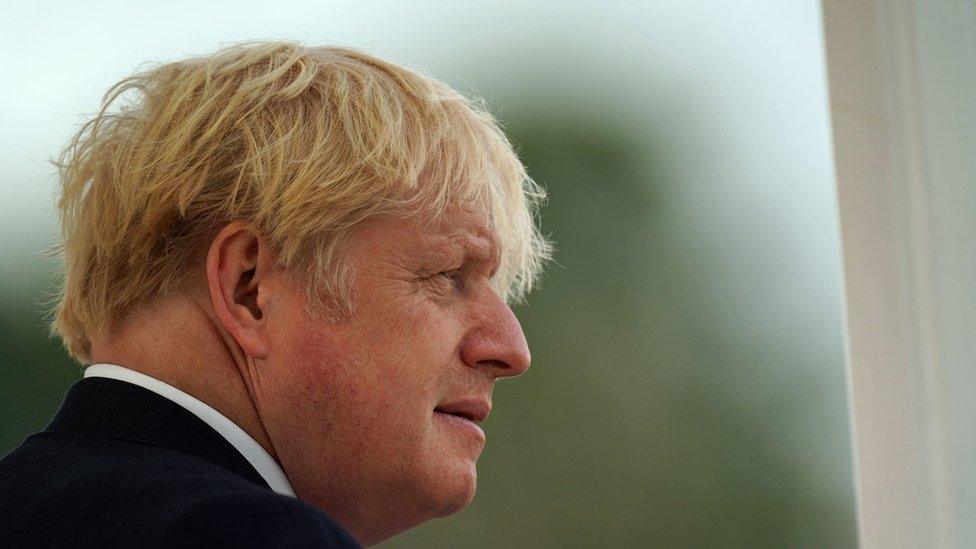Northern Ireland Protocol: Government's pledge a good start - DUP
- Published
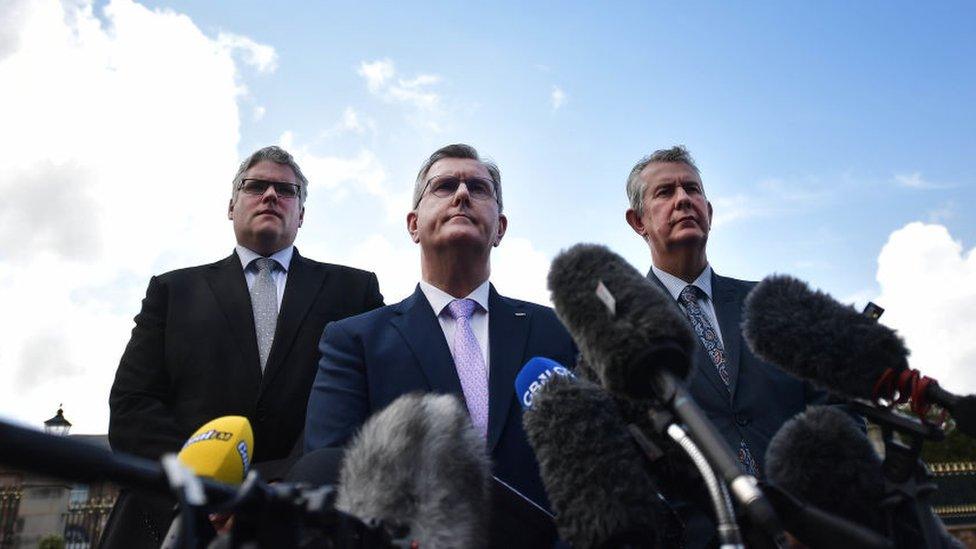
DUP leader Sir Jeffrey Donaldson (centre) said the government's pledge was a good start
A government pledge to legislate on the Northern Ireland Protocol is "a good start", but not enough to entice the DUP to restore Stormont, its party leader Sir Jeffrey Donaldson has said.
The party has blocked the establishment of the NI Assembly and the governing executive of ministers in protest against post-Brexit trade arrangements.
On Monday, the UK foreign secretary outlined plans to change the protocol.
However, Sinn Féin said the legislation proposal would break international law.
Unionist politicians in Northern Ireland have argued the protocol, which protects free trade across the Irish land border between the UK and the EU, has undermined Northern Ireland's place in the UK.
On Tuesday, Foreign Secretary Liz Truss said the government wanted to end the "unnecessary bureaucracy" which had been added to the movement of some goods from Great Britain to Northern Ireland.
She said it would help resolve "the grave situation in Northern Ireland", but would not scrap the protocol.
The proposed bill would include the removal of regulatory barriers to goods made to UK standards being sold in Northern Ireland and introduce a new dual regulatory regime, which would allow businesses to choose between meeting UK or EU standards.
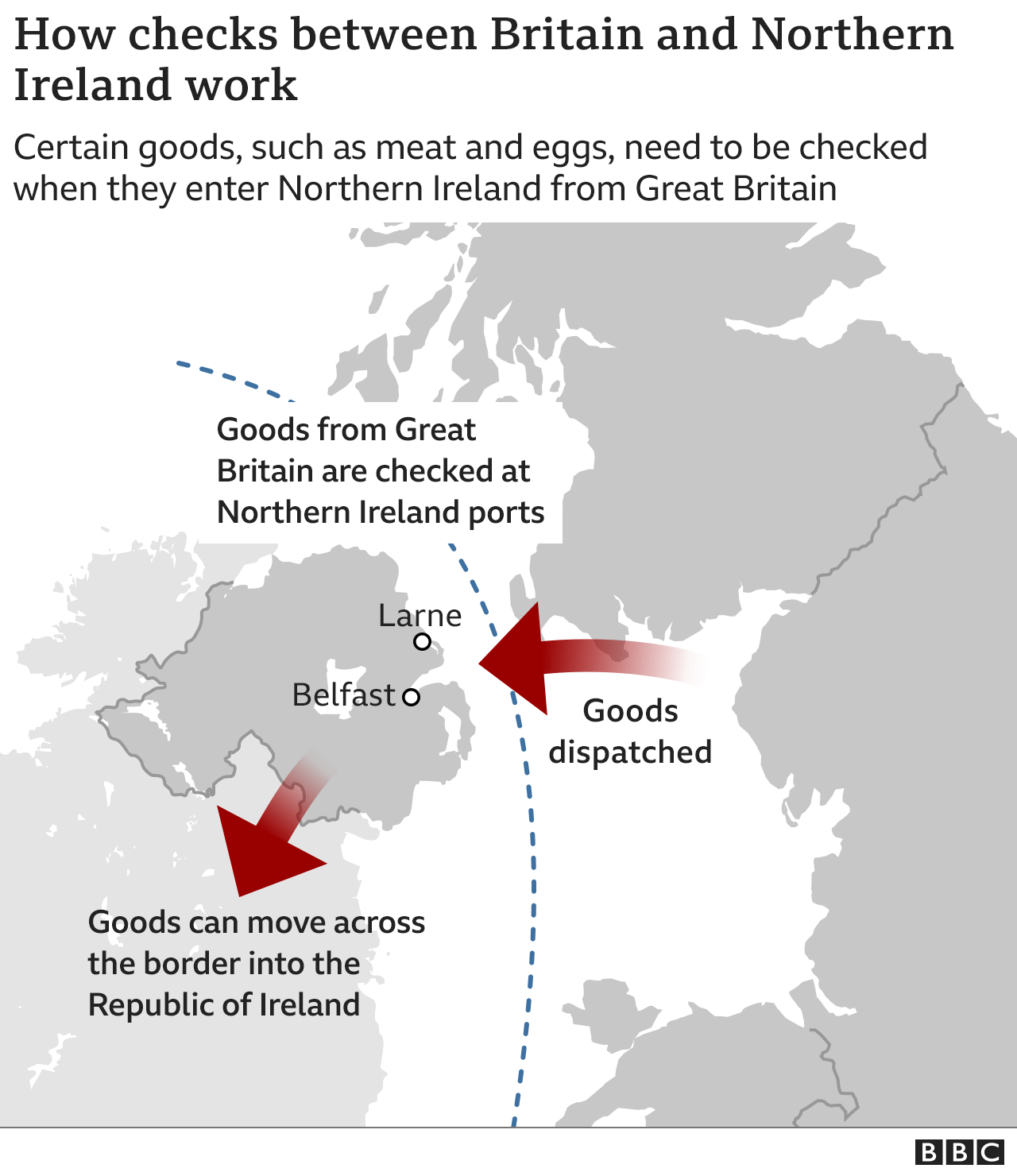
In response, Sinn Féin President Mary-Lou McDonald described the UK as behaving like a "rogue state" at a time when "government and progress" had been blocked at Stormont.
Sinn Féin was returned as Northern Ireland's largest party after the 5 May assembly election.
Prime Minister Boris Johnson was in Northern Ireland on Monday to meet with the five main parties, however, he was accused of providing a lack of detail on the government's plans to deal with the protocol.
On Tuesday, he said the proposed changes amount to "getting rid of some relatively minor barriers to trade".
"I think there are good common sensical solutions."
'Pragmatic step'
Sir Jeffrey, whose party campaigned for Brexit, said he hoped to see progress on the government's bill in "days and weeks, not months".
He repeated his stance that "actions speak louder than words" with regard whether the move would satisfy the DUP's demands sufficiently for the party to re-enter government in Northern Ireland. government.
Northern Ireland's devolved government cannot operate without cross-community support of both nationalists and unionists.

The basics
The Northern Ireland Protocol is part of the Brexit deal: it means lorries don't face checkpoints when they go from Northern Ireland (in the UK) to the Republic of Ireland (in the EU)
Instead, when goods arrive in Northern Ireland from the rest of the UK (England, Scotland and Wales), they are checked against EU rules
The UK and the EU chose this arrangement because the Irish border is a sensitive issue due to Northern Ireland's troubled political history
Read more: Guide to the Brexit border problem

Maroš Šefčovič, vice-president of the European Commission, said the EU would respond to the move with "all measures at its disposal", adding that it wanted a "positive and stable relationship with the United Kingdom".
"This relationship must be based on the full respect of the legally binding commitments that the two sides have made to one another," he said.
At a Dublin business dinner on Tuesday night, Ireland's Tánaiste (Deputy Prime Minister) Leo Varadkar said: "The fact that the UK government is talking openly about breaching international law is a matter of concern."
Mr Varadkar said the British government had not reciprocated the flexibility shown by the EU on the protocol and its actions were "breeding mistrust in EU capitals".
Ireland's Foreign Affairs Minister Simon Coveney said the UK's action could damage trust and "will serve only to make it more challenging to find solutions to the genuine concerns that people in Northern Ireland have about how the protocol is being implemented".
'Counterproductive and destructive'
The UK and the EU have been engaged in months of talks, without resolution, to deal with concerns about how the protocol has operated.
A number of mitigation measures have been in place since the agreement was signed to spare Northern Ireland from some of the checks on goods.
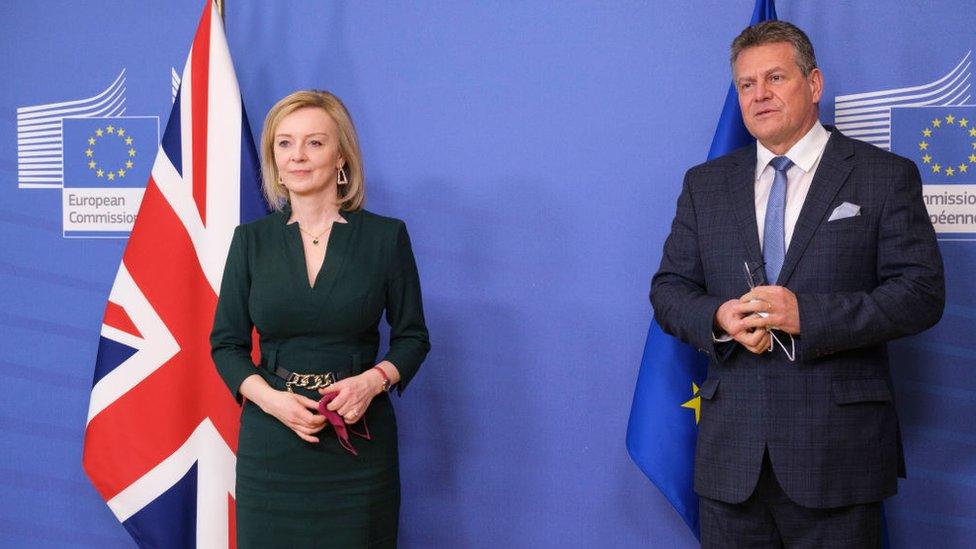
Liz Truss and Maroš Šefčovič have held negotiations on an agreed outcome to deal with the protocol
Ulster Unionist Party (UUP) leader Doug Beattie described the government's pledge as "a step towards fixing the protocol in a pragmatic way".
"I regret that we have got to this point, but this circular conversation cannot continue without conclusion," he continued.
Stephen Farry, the deputy leader of the Alliance Party, said the proposed action was unwanted and unwarranted.
"Indeed, it may prove to be counterproductive and destructive. Much of the rationale cited by the government is disingenuous."
Social Democratic and Labour Party (SDLP) leader Colum Eastwood said the majority of citizens in Northern Ireland supported the protocol.
Speaking in the Commons, Mr Eastwood questioned how it would be possible to "trust this government again" if it brings forward legislation.
What are business groups in Northern Ireland saying?
The business community in Northern Ireland has also reacted to the statement by the foreign secretary in the Commons.
The Confederation of British Industry (CBI) director in Northern Ireland, Angela McGowan, said "the last thing" businesses want is further uncertainty.
"Now more than ever, flexibility and compromise are needed from both sides to reach lasting trade solutions, securing peace and prosperity," she outlined.
Garden centre owner John Shannon explains how the protocol has affected his business
"With good political will a landing zone can undoubtedly be found so that Great Britain-Northern Ireland trade flows are smoothed."
Peter Somerton, managing director of the transport and freight company McCulla, said the checks are the smallest and final part of the process in moving goods from Great Britain to Northern Ireland.
Rather, the preparation of documentation has placed the greatest demand on his business, he told the BBC.
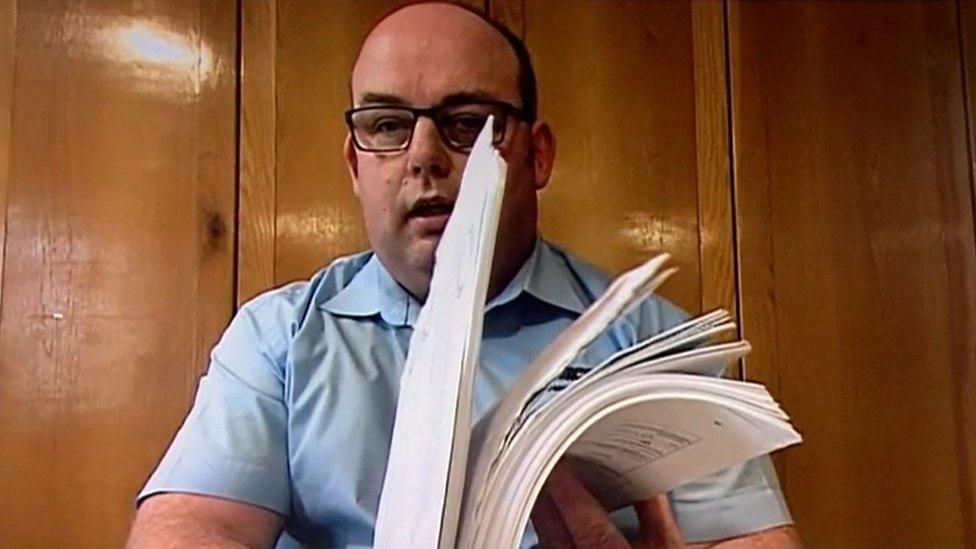
Peter Somerton said dozens of certificates are needed to move some goods between Great Britain and Northern Ireland
"The complexity of the shipments and the complexity of the legislation simply creates that much bureaucracy that for a single pallet of ready meals for palliative care patients or a fishing load requires tens and tens and tens of certificates just to move," Mr Somerton said.
The Northern Ireland Business Brexit Working Group said it would study the detail of the government's plan, but added "anything other than a negotiated outcome is sub-optimal".
Retail NI chief executive Glyn Roberts said the body would have engagement with ministers in London on the statement this week.
The election of a Speaker in the assembly and the establishment of the executive "needs to happen immediately", he continued.
- Published17 May 2022
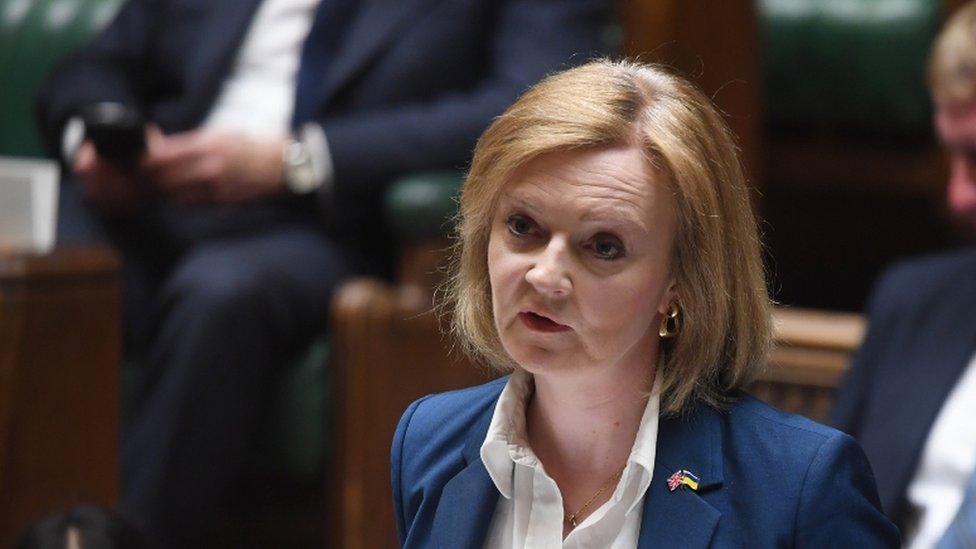
- Published16 May 2022
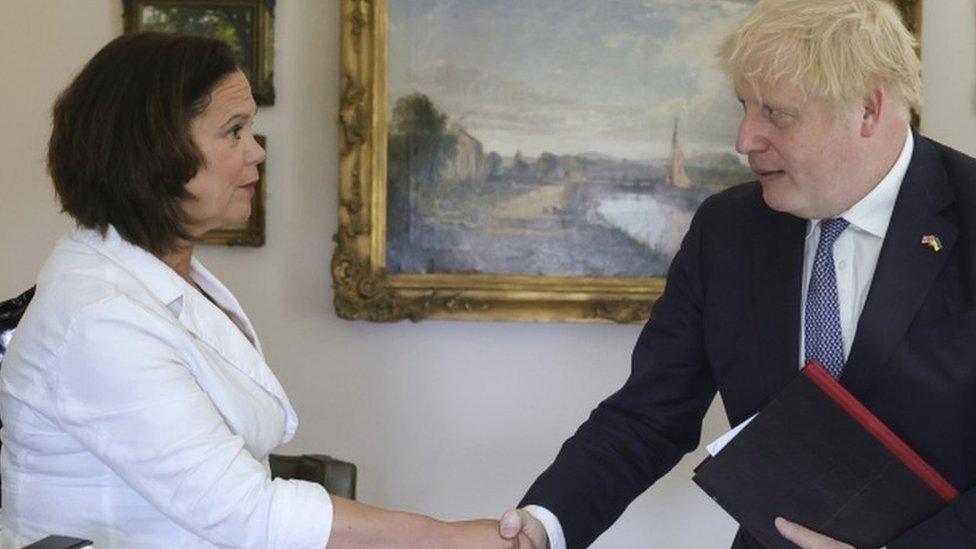
- Published2 February 2024

- Published2 March 2023
